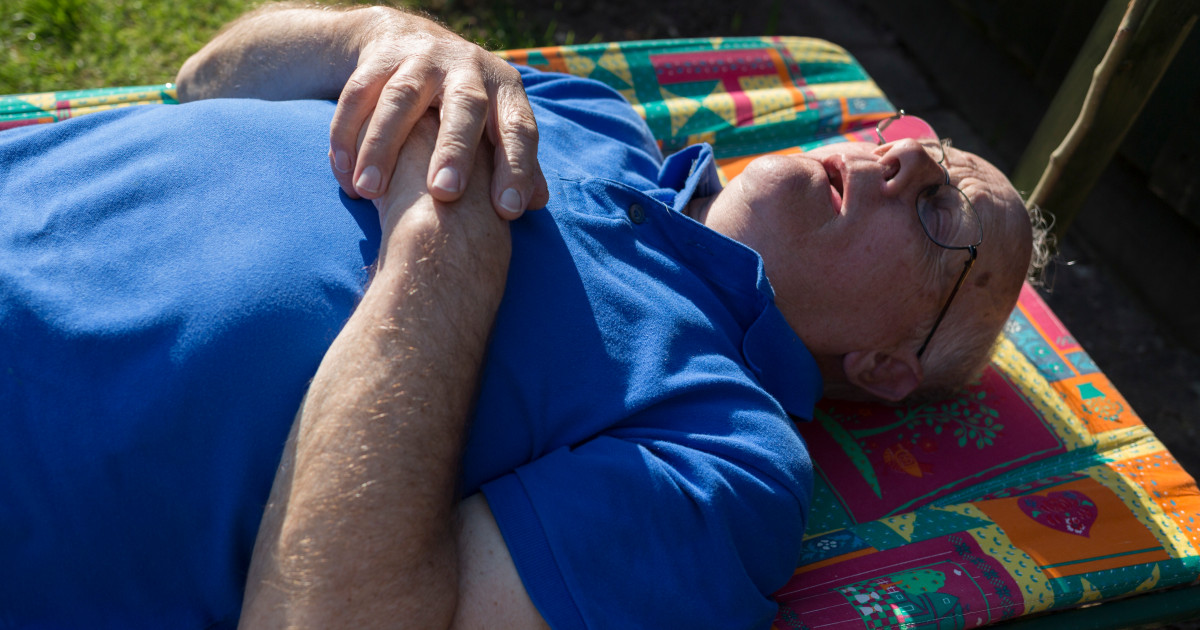The Conversation
The first to represent snoring with the onomatopoeia “zzz” was the German Rudolph Dirks in a comic strip in the German magazine Katzenjammer Kidswhich was published on August 2, 1903. This made it possible to differentiate in the drawings between a sleeping person and another who was dead.
Comics spread the use of “zzz” as a graphic expression of that sound throughout the world, mainly through American pop culture. But how is it represented in other countries? The Germans use “chrrr”, a priori closer to the real sound than “zzz”. The French opt for the sonorous erre: “rrroooo”, “rrr”, “roon”…. The Spanish also use “rooooon”, the Japanese “guu guu” and the Finns “kroohpyyh”, an apparently more complex and recognizable sound for many of those who suffer from it.
Generally, the person who emits them is not aware of the attack on other people's ears, but the old concept of relating snoring to relaxed and restful sleep lacks a scientific basis.
Where do snoring come from?
Snoring is a very common act that worsens with age: more than half of people over 60 years of age do it. Snoring occurs during inspiration, and rarely persists during expiration. It is generated by an increase in the resistance of the airway and digestive tract: as the upper airway narrows, the resistance increases and the tissues vibrate, generating the characteristic sound. It is normally an irregular “soundtrack”, both in frequency and volume.
This behavior is linked to apneas: although not all snorers have these breathing pauses during sleep, and not all patients with apneas have snoring. People who snore are at greater risk of suffering from obstructive sleep apnea. This mainly concerns heavy snorers.
Additionally, many people who snore complain of experiencing unrefreshing sleep and cognitive impairment during the day. It may be due to poor sleep efficiency, with increased awakenings during sleep.
Some studies even suggest that the transmission of snoring sounds can cause thickening of the carotid artery wall. However, it is not related as an independent factor to carotid disease (obstruction that can cause a stroke).
The long-suffering bedfellows
Often, as we indicated at the beginning, it is a bigger problem for the bed partner than for the person making the strident sound. Unable to sleep, the sufferer will push the snorer to change position to stop or mitigate the noise. And he will surely achieve this temporarily, preventing him from sleeping on his back (supine position) or causing less depth of sleep and greater brain and muscle activation.
Bed partners' sleep loss due to this is estimated at around 60 minutes each night, which can have long-term physical and mental consequences for them.
They are also exposed to ambient noise levels that exceed recommended nighttime noise pollution limits. One study even reveals hearing loss in the ear chronically exposed to the noise of snoring.
What treatments exist?
Despite everything, snoring is usually considered more of a social problem than a medical issue. Perhaps that is why there is a lot of heterogeneity in the treatments applied.
- Changes in lifestyle. They can be very effective. Overweight and obesity contribute to the problem, and a relatively small weight loss can eliminate or alleviate it. When you lose kilos, your waist circumference decreases, but also the thickness of your neck and the size of your tongue. Suppressing or reducing the consumption of alcohol and sedatives also has a positive effect, since they relax the muscles.
- Continuous positive pressure (CPAP) device. It is the treatment of choice for obstructive sleep apnea, but it can also eliminate conventional snoring. As it is not indicated for this, the patient must bear the costs of the CPAP.
- Oral appliances. We are referring to mandibular advancement devices (MAD), those that close the mouth and those that help prevent the tongue from falling backwards. They help keep the airway open during sleep, but there are patients who do not obtain results with them. They should be prescribed by doctors or dentists familiar with sleep problems.
- Alternative remedies. Some studies indicate a certain improvement with essential oil sprays, which are based on reducing the resistance to the passage of air.
- Positional treatment. Sleeping on your side often works. During World War I, American soldiers were advised to sleep with their backpacks on their backs to prevent snoring and avoid detection by the enemy. Objects such as special pillows, a ball placed in the back of pajamas, or vibrating devices are often used to prevent supine positioning.
- Surgical treatments. Among the many modalities that exist, most act on the soft palate, since its flapping is the most frequent cause of snoring. However, no procedure has worked definitively in all cases.
In conclusion, it is important to evaluate snoring patients with a sleep study to rule out apnea, but there is no treatment that eliminates this problem in all those affected. In any case, weight loss and lifestyle changes appear to be the most effective measures.

